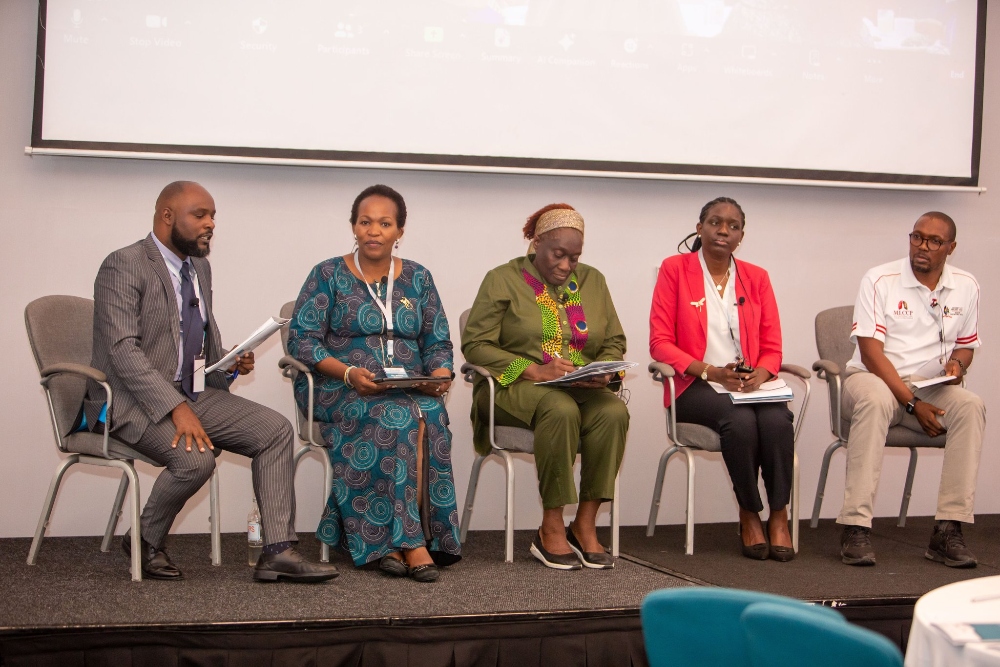We, the participants of the Nairobi Cervical Cancer Elimination and HPV Vaccination Convening, representing a diverse group of faith leaders, health professionals, experts, health and community advocates, as well as policymakers, convened in Nairobi from the 11th to the 13th of June 2024, under the theme “Uniting Faith and Science against Cervical Cancer.”
Recognizing:
- The devastating impact of cervical cancer on the social fabric of our families and economies in Africa and the pain and suffering to African women, with approximately 126,000 new cases and 81,000 deaths annually (Globocan).
- The underutilization of existing health services due to cultural, logistical, and informational barriers.
- The powerful influence of faith leaders and communities in shaping health behaviors and decisions.
- The collaborative spirit of this convening, which brought together a wide range of stakeholders to address the scourge of cervical cancer through dialogue and partnership.
We hereby declare the following key outcomes and commitments:
- Enhanced Collaborative Networks:
- Establish new partnerships and strengthen existing ones among faith-based organizations, health authorities, advocacy, and community groups to enhance the reach and effectiveness of cervical cancer prevention efforts.
- Capacity Building for Faith Leaders:
- Conduct multiple sessions and workshops for faith leaders, equipping them with the necessary and relevant knowledge and resources to advocate effectively for behavioral change communication, HPV vaccination, HPV screening, treatment, palliative care, and survivorship.
- Ramping Up Vaccination Efforts:
- Leverage the resources of faith networks to significantly increase HPV vaccination rates. Commit to expanding access to vaccines by enhancing public awareness to ensure widespread uptake.
- Expanded Screening Initiatives:
- Utilize the resources of faith networks and the influence of faith leaders to broaden behavioral change activities and screening initiatives across the continent. Employ advanced diagnostic technologies and improve infrastructure to reach remote and underserved areas. Collaborate with governments and health organizations to make screening a routine part of women’s healthcare.
- Strengthening Service Delivery and Guidelines:
- Enhance access to treatment protocols for pre-cervical and cervical cancer. Upgrade local health facilities, offer continuous training to healthcare professionals, and ensure the availability of essential medical supplies and equipment for effective treatment.
- Policy Engagement and Advocacy:
- Engage in strategic discussions with policymakers to advocate for comprehensive cervical cancer care policies. Support the implementation of advanced behavioral change communication, HPV vaccination, HPV screening, treatment, palliative care, and survivorship in line with the WHO 90-70-90 targets.
- Integrated Sustainable Healthcare Models:
- Recommend sustainable healthcare models that incorporate behavioral change communication, HPV vaccination, HPV screening, treatment, palliative care, and survivorship into primary healthcare systems. Ensure lifelong access to these critical services for girls and women, and eventually boys.
- Community Engagement and Education:
- Engage communities and increase public awareness about the importance of behavioral change communication, HPV vaccination, HPV screening, treatment, palliative care, and survivorship. Develop culturally sensitive advocacy strategies tailored to the unique needs of various African communities. Plan educational programs and community workshops to dispel myths and stigma associated with cervical cancer.
- Monitoring and Evaluation:
- Establish a framework for ongoing monitoring and evaluation to assess the effectiveness of the implemented strategies. Allow for continuous improvement based on real-time data and feedback from the participating regions.
- Resolution to Sustain Momentum:
- Maintain the momentum generated during this convening through regular follow-up meetings and communications among all stakeholders.
As we move forward from this convening, we are energized and committed to continuing our efforts to combat cervical cancer through increased HPV vaccination rates, enhanced screening, robust treatment protocols, and effective public health strategies. Together, we strive towards a future where cervical cancer no longer poses a significant threat to the health and well-being of women in Africa



